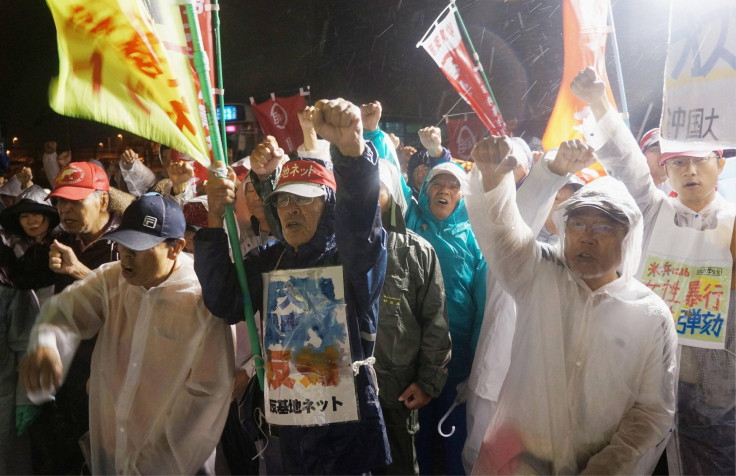Rape Charges Inflame Okinawan Anger Over US Military Presence

The alleged rape of a Japanese woman by two U.S. sailors stationed in Okinawa has set off a firestorm of protest among the island’s residents who have long been resentful of the American military presence there.
The two sailors, both 23-year-old men, were arrested by Japanese authorities Tuesday, the same day of the incident.
The U.S. Ambassador to Japan John Roos said his office was taking the incident very seriously and cooperating with local authorities.
“The United States government is extremely concerned by recent allegations of misconduct by two individual United States service members,” Roos said in a statement, the Associate Press reported.
“We are committed to cooperating fully with the Japanese authorities in their investigation. ... These allegations, given their seriousness, will continue to command my full personal attention."
The incident has incited an uproar among the Okinawans who have demanded a reduction of the U.S. military presence on the island. If the two men are convicted, it will be the second case of sexual assault by members of the U.S. military. In 1995, three U.S. servicemen raped a 12-year-old girl, which was followed by mass protests by Okinawans.
NHK, Japan’s national broadcaster, reported that the latest rape case represented the seventh arrest of American servicemen for sex crimes since the U.S. returned Okinawa to Japan in 1972.
There are currently over 25,000 U.S. troops stationed in Okinawa, more than half of the U.S. forces in all of Japan. Many of the U.S. bases are located in densely populated areas of Okinawa.
The U.S. has responded to the protests by agreeing to relocate some 9,000 troops off the island, as well as to eventually close the Futenma airbase located in an urban area of Okinawa and open a new one in a less densely populated part of the island, though such plans have been delayed.
The U.S. military presence in Japan has increasingly become strategic in the East Asia region with the expansion of China’s military and the persistent threat of North Korea, which aims to develop nuclear missiles.
© Copyright IBTimes 2025. All rights reserved.





















